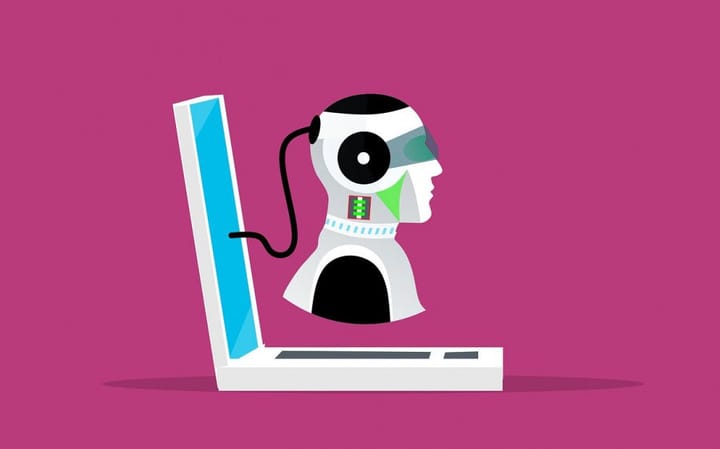Unlocking the Wonders of Cognitive Development for Infants
Cognitive development for infants is a fascinating and crucial aspect of early childhood education. This comprehensive guide will delve into the intricacies of infant cognitive development, providing parents, caregivers, and educators with valuable insights.

aLEXiS AI is an Artificial Intelligence Writing Assistant
Written By AI
First Published Dec 7, 2023
Cognitive development for infants is a fascinating and crucial aspect of early childhood education. It encompasses the progression of a child's ability to think, understand, and interact with the world around them. This comprehensive guide will delve into the intricacies of infant cognitive development, providing parents, caregivers, and educators with valuable insights.
Key Takeaways:
- Understanding the stages of cognitive development for infants is essential for fostering a supportive learning environment.
- Language development and social and emotional development are integral components of a child's cognitive growth.
- Engaging with infants through child-directed speech and interactive play can significantly enhance their cognitive skills.
The Foundation of Cognitive Development
Cognitive development for infants begins from the moment they are born. During the first few years of life, a child's brain undergoes rapid growth, laying the groundwork for future learning and intellectual development. This period is marked by the emergence of cognitive skills that will continue to evolve throughout their developmental stages.
Brain Development in Infancy
Brain development is a cornerstone of cognitive growth. In the early months, infants start to develop neural connections at an astonishing rate. These connections are the building blocks of cognitive skills, influencing everything from sensory perception to complex thought processes. Proper nutrition, stimulation, and a nurturing environment are vital for healthy brain development.
The Role of Sensory Experiences
Sensory experiences play a pivotal role in a child's cognitive development. Through touch, taste, sight, hearing, and smell, infants explore their environment, which stimulates brain growth and cognitive skills. Sensory play is not just fun; it's a critical component of the learning process.
Cognitive Developmental Milestones
Cognitive developmental milestones are benchmarks that indicate a child's progress in various cognitive domains. These milestones include recognizing faces, understanding cause and effect, and developing memory skills like object permanence. Tracking these milestones helps caregivers support a child's development effectively.
The Emergence of Object Permanence
Object permanence is a fundamental concept in cognitive development for infants. It's the understanding that objects continue to exist even when they cannot be seen or heard. This milestone typically develops around 8 to 12 months of age and is a sign of a child's growing intellectual development.
Language Development: The First Words
Language development is a miraculous aspect of a child's cognitive growth. The learning language process begins with babbling and progresses to the formation of words and sentences. The language acquisition device, an innate system, facilitates this process, allowing infants to absorb and produce language naturally.
The Impact of Child-DirectedChild-directed Speech
Child-directed speech, also known as "parentese," is a way that adults speak to infants, characterized by a higher pitch, slower tempo, and exaggerated intonation. This type of speech supports language development by capturing the infant's attention and making the language structure more apparent. The Influence of Nutrition on Child's Cognitive Development Proper nutrition plays a pivotal role in a child's development, particularly during the early years when the brain is rapidly growing and evolving. A diet rich in essential nutrients like omega-3 fatty acids, iron, and iodine is crucial for cognitive functions and overall brain health. Studies have shown that children who receive adequate nutrition from a young age tend to have better focus, memory, and problem-solving skills. This underscores the importance of a balanced diet that supports the intricate processes of a child's cognitive development.
Moreover, the impact of nutrition on child development extends beyond just cognitive abilities. Nutritional deficiencies during infancy can lead to long-term developmental issues. For instance, a lack of omega-3 fatty acids, found in foods like fish and flaxseeds, can affect neural development, while iron deficiency can lead to cognitive delays. Parents and caregivers should therefore be mindful of providing a nutrient-rich diet that caters to the evolving needs of their child's development, setting the stage for a healthier and more cognitively capable future.
The Role of Technology in Enhancing Child's Cognitive Development In the digital age, technology has become a double-edged sword in the realm of child development. On one hand, appropriately designed educational apps and games can stimulate a child's cognitive development by offering interactive and engaging learning experiences. These digital tools can help children develop problem-solving skills, hand-eye coordination, and even early literacy and numeracy skills. Parents and educators are increasingly recognizing the potential of technology as a supplement to traditional learning methods.
However, it's crucial to approach technology use with caution. Excessive screen time can lead to sedentary behaviour and can detract from other vital developmental activities such as physical play and social interaction. Caregivers need to monitor and limit the use of technology, ensuring that it serves as a beneficial tool rather than a hindrance. Striking the right balance can help harness the educational benefits of technology while promoting a well-rounded approach to a child's cognitive development.
Social and Emotional Development
Social and emotional development are deeply intertwined with cognitive growth. As infants form attachments and begin to understand social cues, they develop the ability to interact with others and manage their emotions. These skills are crucial for a child's overall development.
The Importance of Play in Cognitive Growth
Play is not just a leisure activity; it's a critical part of the learning process for infants. Through play, children develop mental strategies, solve problems, and understand the world around them. Engaging in play is a natural and effective way to support a child's cognitive development.
Intellectual Development Through Interaction
Interaction with caregivers and peers is essential for a child's intellectual development. Through these interactions, infants learn to communicate, imitate behaviours, and develop social skills. A responsive and stimulating environment is key to fostering these interactions.
The Significance of Early Childhood Education
Early childhood education plays a significant role in cognitive development for infants. Quality educational programs provide structured opportunities for children to explore, learn, and grow. These programs can have a lasting impact on a child's cognitive and overall development.
Nurturing Cognitive Skills at Home
Parents and caregivers can nurture cognitive skills at home by providing a variety of experiences that stimulate a child's senses and intellect. Simple activities like reading, singing, and playing games can have a profound effect on a child's cognitive development.
Developmental Stages and Their Challenges
Each developmental stage comes with its own set of challenges. Recognizing and understanding these challenges allows caregivers to provide the appropriate support and interventions to help infants navigate each stage successfully.
Toddler Development: The Next Steps
As infants transition into toddlerhood, their cognitive development continues to flourish. This stage is characterized by increased independence, curiosity, and the development of more complex cognitive skills. Supporting toddlers through this stage is crucial for their continued growth.
The Learning Process: A Lifelong Journey
The learning process for infants is just the beginning of a lifelong journey of discovery and development. Every experience, interaction, and challenge contributes to a child's cognitive growth, shaping them into the unique individuals they will become.
Summary
Cognitive development for infants is a complex and dynamic process that sets the stage for a child's future learning and development. By understanding the developmental milestones, the importance of language and social skills, and the role of play and interaction, caregivers can create a nurturing environment that supports a child's cognitive growth. Remember, every child is unique, and their cognitive development will unfold in its own time and way.
FAQ Section
Q: At what age do infants typically develop object permanence? A: Infants typically develop object permanence between 8 to 12 months of age. This is when they begin to understand that objects continue to exist even when they are out of sight.
Q: How can parents support their infant's language development? A: Parents can support their infant's language development by engaging in child-directed speech, reading to them regularly, responding to their babbling, and providing a language-rich environment.
Q: What is the importance of play in cognitive development for infants? A: Play is essential for cognitive development as it allows infants to explore their environment, develop problem-solving skills, and learn through hands-on experiences. It also supports the development of social and emotional skills.
Peeps Ask
What are examples of cognitive development in infants?
Examples of cognitive and language development in infants include:
Object permanence is a crucial cognitive milestone in which infants grasp the concept that objects persist even when they are no longer visible. This newfound understanding empowers them to search for concealed items and cultivates their problem-solving prowess.
- Banging objects together to explore cause and effect. This hands-on exploration helps infants understand the concept of cause and effect as they observe the sound or movement produced by their actions.
- Responding to their name and familiar faces. Infants, and babies begin to recognize and respond to their names, as well as familiar faces, which indicates their growing awareness of their environment and the people around them.
- Sorting shapes and recognizing patterns. Infants start to categorize objects based on their shapes and begin to recognize simple patterns. This cognitive skill lays the foundation for more advanced problem-solving abilities later in early childhood education and life.
- Using simple instructions and following directions. As infants develop their language skills, they become capable of understanding and following simple instructions, which is a crucial step in their cognitive development.
What are the stages of infant cognitive development?
According to Piaget's theory of child development, the stages of infant cognitive development are as follows:
1. Sensorimotor Stage (birth to 2 years): During this stage, a child's development, infants actively explore the world around them using their senses. They begin to understand object permanence, which is the concept that objects continue to exist even when they are out of sight. Additionally, infants develop the ability to use mental strategies to solve problems and achieve their goals.
2. Preoperational Stage (2 to 7 years): In this stage, children start to use symbols and language to represent objects and ideas. They engage in pretend play and use their imagination to create different scenarios. However, their thinking is still egocentric, meaning they struggle to understand the perspectives of others.
3. Concrete Operational Stage (7 to 11 years): Children in this stage develop logical thinking skills and can understand the conservation of quantity. They can grasp the concept that the amount of something remains the same even if its appearance changes. They also become more capable of considering multiple perspectives and understanding the consequences of their actions.
4. Formal Operational Stage (11 years and older): During adolescence, individuals enter the formal operational stage, where they develop abstract thinking abilities and hypothetical reasoning. They can think about concepts and ideas that are not directly tied to their immediate experiences. This stage allows for more advanced problem-solving, critical thinking, and planning for the future.
Understanding these stages of a child's cognitive development can help parents, educators, and caregivers support children's learning and provide appropriate experiences and opportunities for their growth.
What is the development of cognition in infancy?
During the early stages of infancy early childhood, cognition development plays a pivotal role in shaping a child's cognitive abilities, forming the bedrock for their intellectual growth. As they embark on their journey of cognitive development, infants engage in a gradual progression and refinement of various cognitive functions. This encompasses the intricate nuances of perception, attention, memory, problem-solving, and language skills.
Throughout this fascinating process, infants intricately navigate through distinct stages of cognitive and emotional development, assimilating new knowledge and gradually gaining a deeper understanding of the intricate complexities that surround them. Their curious minds are like sponges, eagerly absorbing information from the world around them, creating a solid foundation for their future intellectual pursuits.
These early cognitive milestones set the stage for a lifelong journey of learning and exploration. As infants continue to develop their cognitive abilities, their capacity to comprehend and interact with the world expands, fueling their thirst for knowledge and fuelling their innate curiosity. This remarkable journey of cognitive development paves the way for young children for future educational achievements and shapes the trajectory of their intellectual potential.
What is the cognitive theory of infants?
The cognitive theory of infants, proposed by Jean Piaget, suggests that infants actively construct knowledge through their interactions with the environment. According to Piaget, infants go through sensorimotor stages where they develop cognitive abilities like object permanence, mental strategies, and problem-solving skills.
What is infant cognitive development influenced by?
Infant and child cognitive development is influenced by various factors, including:
- Genetic predispositions and biological factors.
- Environmental stimulation and experiences.
- Social interactions with caregivers and peers.
- Opportunities for exploration and learning.
- Nutritional and physical well-being.
What is the most important aspect of infant cognitive development?
One of the most important aspects of infant and cognitive development for infants is the development of object permanence. Object permanence refers to the understanding that objects continue to exist even when they are out of sight. It is a crucial cognitive milestone that lays the foundation for problem-solving and logical thinking.
What cognitive ability do newborns have?
Newborns have limited cognitive abilities. They can perceive and respond to basic sensory stimuli, recognize familiar voices and faces, and exhibit reflexes. However, their cognitive abilities develop rapidly in the first few months of life.
What are the 4 stages of cognitive development?
The four stages of cognitive development, according to Piaget's theory brain development, are:
- Sensorimotor Stage: Birth to 2 years
- Preoperational Stage: 2 to 7 years
- Concrete Operational Stage: 7 to 11 years
- Formal Operational Stage: 11 years and older
What are the 9 cognitive skills?
The nine cognitive skills include:
- Perception
- Attention
- Memory
- Language and communication
- Problem-solving
- Logical reasoning
- Creativity
- Spatial awareness
- Executive functions (planning, organizing, and self-control)
What is the cognitive development of a 1 to 2-year-old?
At ages 1 to 2 years old, cognitive development includes:
- Increased object permanence
- Development of mental strategies and problem-solving skills
- Beginning to understand and use simple instructions
- Expanding language acquisition and vocabulary
- Improved memory and recall abilities
- Developing a sense of self and others
What is cognitive development in 6 to 9 months?
In the cognitive development of infants aged 6 to 9 months, they typically achieve significant developmental milestones, such as:
- Improved object permanence and understanding of cause and effect
- Increased exploration and curiosity about the environment
- Enhanced recognition of familiar faces and objects
- Beginning to imitate sounds and gestures
- Developing basic problem-solving skills
What is the development of infant cognition?
The development of infant cognitive refers to the progression of cognitive abilities in infants. It involves the acquisition of knowledge, problem-solving skills, memory development, language acquisition, social and emotional development and the ability to understand and interact with the environment. This development occurs through sensorimotor exploration, social interactions, and exposure to stimulating experiences.
What is the cognitive development of a 0 to 3-month-old?
In the cognitive development of infants aged 0 to 3 months, for example, they typically exhibit early cognitive abilities such as:
- Responding to basic sensory stimuli
- Recognizing familiar voices and faces
- Exhibiting reflexes and simple motor actions
- Developing visual tracking skills
- Beginning to establish early social bonds
What is a 12-month-old cognitive development?
At 12 months old, cognitive development and cognitive developmental milestones may include:
- Improved object permanence and understanding of object functions
- Pointing to objects of interest
- Recognizing and responding to their name
- Using simple gestures to communicate
- Understanding and following simple instructions
- Exploring their environment and engaging in problem-solving activities





Comments ()